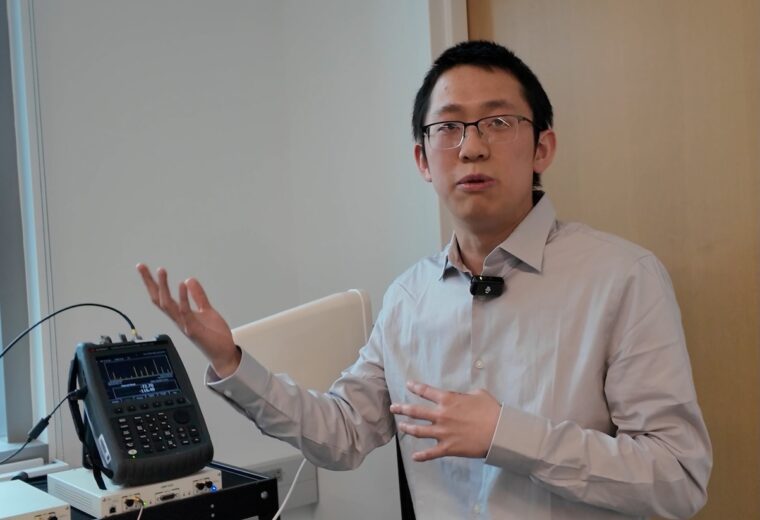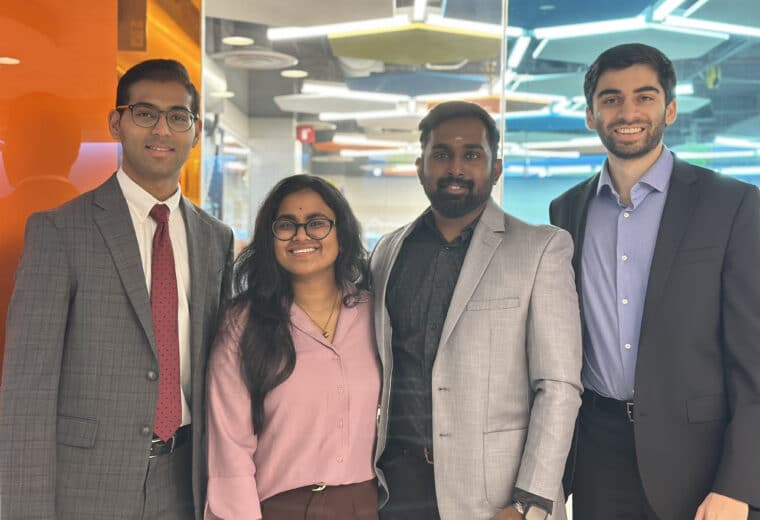
Using the Physics of Radio Waves to Empower Smarter Edge Devices
Duke engineers publish new method to use analog radio waves to boost energy-efficient edge AI.
We’re sorry—the news story you were looking for has been archived.
Please see the most recent stories below.

Duke engineers publish new method to use analog radio waves to boost energy-efficient edge AI.

Student-led startup pursues award-winning treatment for patients with disruptions to their autonomic body processes.

The mechanics of how water and carbon dioxide move in and out of plants greatly affects how trees grow in a carbon-dioxide-enriched environments.